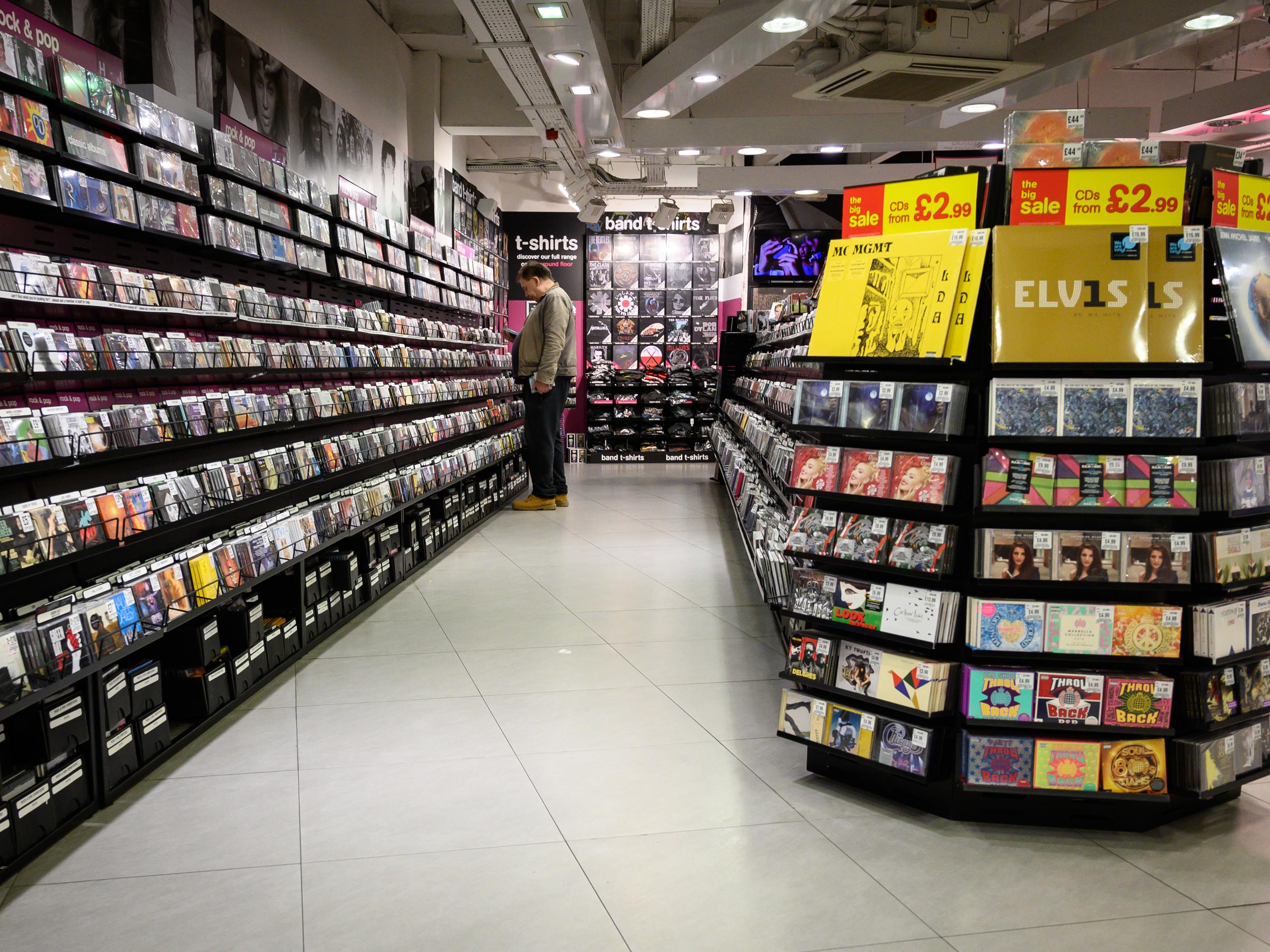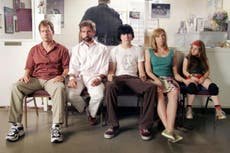Don't mourn the death of CDs, but fear the cultural deluge that will drive people apart
The explosion of entertainment content is helping to kill physical formats – and is setting generations adrift from each other


Millennials get a lot of grief. They’re either fragile, frivolous or just infuriatingly young. This week came the shock realisation that everyone born in 2000 is now a fully-fledged Gen Z adult. The passing of time can catch you out like that. One thing we can’t accuse either generation of though, is propping up the ailing CD market.
Sales fell again in 2018, by nearly a quarter. Streaming and downloads carry on chipping away at the edifice, and even vinyl, which has been cheered as the saviour of the physical music market, saw barely any growth at all.
It may feel like something is being taken away from us: the ability to touch, store, dust or misplace our art (and in the end to drag it along to the charity shop or down to the tip). In truth though, it is an entirely reasonable act of self-preservation.
I don’t need to mount a defence of any generational cohort. Doubtless this lot will be as glorious, futile and catastrophic as all the others. But we should extend a hand of sympathy over the crushing cultural burden we have passed down.
The demands on a 19-year old now are immense. If they are going to learn the code of adult society, they need the athletic mind of a pop-culture polymath. The sheer volume and availability of cultural material has exploded through every decade, and grown fresh wings in the streaming revolution.
The number of music albums released per year in the US alone more than doubled in the decade to 2006. Just before the global financial crisis struck in 2008 the number was above 100,000. Not every one is a smash, of course, but every year, new musical icons are minted, new essential references added to the list. Extrapolate that worldwide and it’s a lot to take in.
Back in 2014, the British Film Institute warned that the number of films released at UK cinemas was at “ridiculous” levels when it hit 698. Last year that number reached 760. IMDb now lists more than half a million movies and more than 3.5m TV episodes. And before we forget, there are of course 1,000 books to read before you die.
That’s all before we look at “new media”. When I was in my teens and twenties, that meant computer games. It felt like we played Mario Kart or GoldenEye for months, years even. In 2017, gaming platform Steam churned out more than 20 new releases a day.
The comedian Adam Buxton sometimes kicks off his online interviews with the playful lyric: “I added one more podcast to the giant podcast bin…” But by crikey, he’s got a point. There are now more than 600,000 on the go and millions of episodes in the bin. Youtube? More than 5,000 channels have 1.5m+ subscribers. New stars are being spawned everywhere you look, whether it’s Fortnite players like Ninja or S-Town podcast maker Brian Reed.
The idea of even attempting to store this volume of content in any kind of physical form seems ludicrous. Goodbye CDs, farewell DVDs. They told us you were indestructible, but that was painfully untrue – on both levels it turns out.
And there is more to consider. You see, when I was trying to make sense of the adult world and learn its language, the bygone cultural reference points required were pretty straightforward.
I could build a passing knowledge of the Beatles; I could take in the basics of Gone with the Wind and It’s a Wonderful Life. TV was even easier. No one expected you to know much about Steptoe and Son or Z Cars, but as they were still on the few channels available, it sank in somehow.
Everything has changed. Will millennials or generation Z bother to understand the artistic touchstones of other generations while living in their own relentless here-and-now? Will anyone under 20 ever watch old episodes of Big Train, or have the time to share in the rich narrative subtexts of Dunstan Checks In? Will they ever understand my, frankly niche, references?
The emergence of a documentary about something called “Bros” must be utterly confounding: what on earth are they talking about? Why are they calling it a real-life Spinal Tap? What the f*** is a Spinal Tap?
Then there will be the deaths. Millennials and Gen Z might have come along for the ride when Bowie and Prince departed, just grasping the scale of the mourning, but will it be the same when the glut of icons built through the Seventies, Eighties and Nineties start to fall in droves? Obituary desks on newspapers will need a breaking news ticker. The names of the dead will barely flicker in most people’s minds.
The explosion of entertainment content is slowly killing CDs and rightly so. It is also creating generational islands, adrift from each other. No one can curate that volume of stuff, even when we no longer need to line our walls with it. The only real solution lies with the old timers. If they want to retain a cultural link to the kids, they need to jettison the artefacts of the past and run headlong into the frantic soup of the new.



Join our commenting forum
Join thought-provoking conversations, follow other Independent readers and see their replies